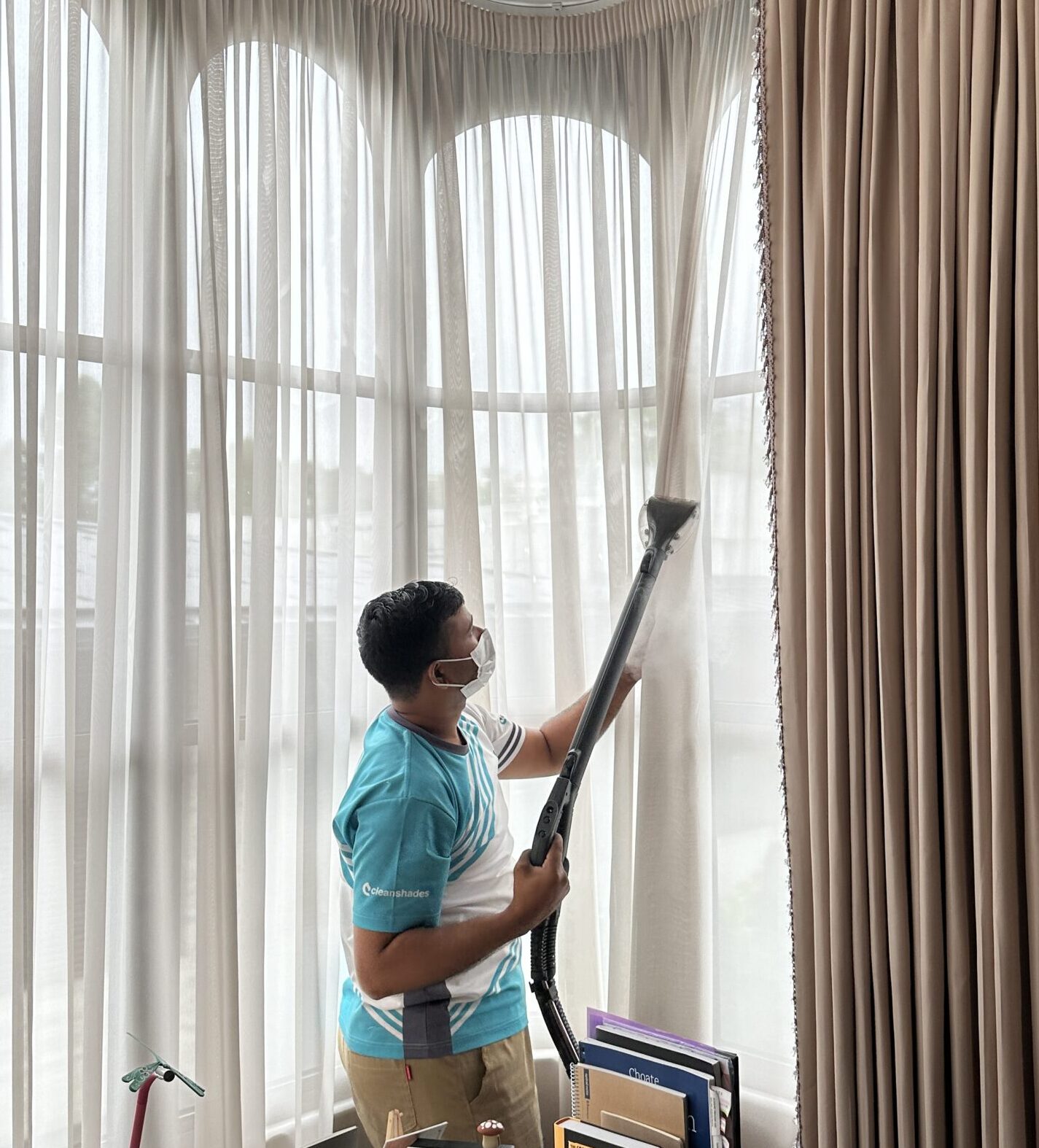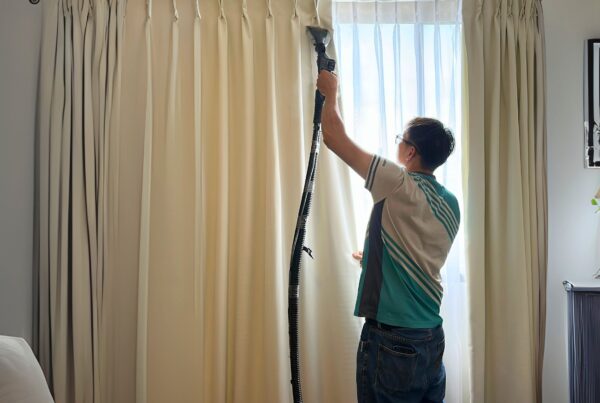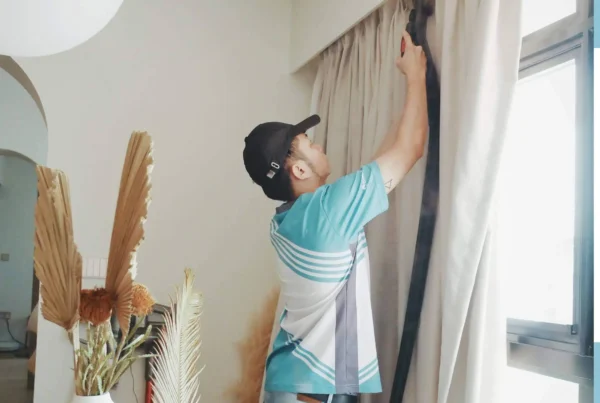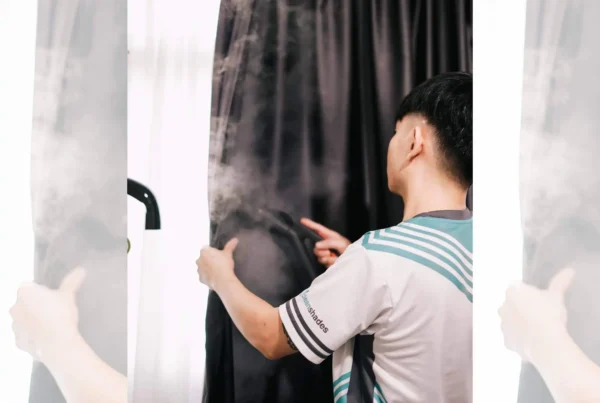Introduction
Curtain cleaning wellness in Singapore is not only about appearance but also about maintaining a healthier home. Curtains act as filters, trapping dust, allergens, and bacteria. Over time, these pollutants affect air quality and increase the risk of allergies, asthma, and skin sensitivities. For families, pet owners, and wellness-conscious individuals, clean curtains play an essential role in creating a safe and calming living environment.
This guide explores how curtain cleaning wellness in Singapore connects to physical and mental well-being, offering practical tips and professional insights.
Why Curtain Cleaning Wellness in Singapore Matters
Singapore’s tropical climate creates an environment where humidity, dust, and mold thrive. Curtains, being porous fabrics, easily absorb pollutants. Without regular curtain cleaning wellness in Singapore homes, your indoor environment may compromise health.
-
Improved indoor air quality: Reduces allergens, mold spores, and dust.
-
Respiratory health: Beneficial for asthma or sinus-sensitive family members.
-
Better rest and sleep: Clean air promotes deeper, restorative sleep.
-
Mental clarity: A fresh and clean environment supports calmness and focus.
The Hidden Health Risks of Dirty Curtains
Dust and Allergens
Curtains accumulate dust, pollen, and pet dander. In Singapore’s humid environment, these particles settle quickly, triggering allergies and sinus issues.
Mold Growth
Moisture from air conditioning or condensation can lead to mold growth. Mold spores embedded in curtain fibers release toxins harmful to the respiratory system.
Bacteria and Odors
Curtains absorb cooking fumes, sweat, and smoke. Without cleaning, bacteria multiply, creating odors and potential health risks.
These issues highlight why curtain cleaning wellness in Singapore should never be overlooked.
How Often Should You Clean Curtains in Singapore?
Maintaining curtain cleaning wellness requires a consistent routine.
-
Light fabrics (voile, sheer): Every 3 to 4 months
-
Heavy fabrics (blackout, lined): Every 6 months
-
Homes with pets or smokers: Every 2 to 3 months
-
Allergy-sensitive households: Weekly vacuuming and quarterly deep cleaning
DIY Curtain Cleaning vs Professional Services
DIY Curtain Cleaning
-
Vacuum using upholstery attachments.
-
Gentle machine washing for lightweight fabrics.
-
Steaming to refresh curtains temporarily.
Limitations: Risk of shrinking, fabric damage, or incomplete sanitisation. DIY methods often fail to eliminate bacteria and mold spores.
Professional Curtain Cleaning in Singapore
-
Steam extraction penetrates deep into fibers.
-
Suitable for delicate fabrics like silk or blackout linings.
-
Provides sanitisation beyond surface cleaning.
For complete curtain cleaning wellness in Singapore, professional cleaning is recommended at least twice a year.
The Role of Curtain Cleaning in Wellness Routines
Physical Wellness
-
Cleaner breathing environment.
-
Less bacteria exposure for children and elderly.
-
Reduced risk of skin irritation.
Mental Wellness
-
Brighter rooms with clean curtains improve mood.
-
A fresh home reduces stress and supports mindfulness.
-
Clean living spaces align with holistic wellness practices.
Curtain cleaning wellness in Singapore contributes to both physical health and emotional balance.
Eco-Friendly Curtain Cleaning for a Healthier Lifestyle
Wellness is not just about the body but also the environment. Singapore households are increasingly eco-conscious.
-
Non-toxic detergents: Safe for children and pets.
-
Steam cleaning with minimal water: Eco-friendly and effective.
-
Sustainable practices: Eco refill stations reduce waste.
For example, Biohome Singapore promotes eco-friendly cleaning solutions that align with wellness and sustainability goals.
Professional Curtain Cleaning Services in Singapore
When choosing a service, consider:
-
On-site vs off-site options: Convenience vs industrial cleaning.
-
Steam sanitisation: Essential for true wellness.
-
Clear pricing: Transparent packages build trust.
For families looking for professional solutions, Cleanshades Curtain Cleaning Services provides safe, fabric-friendly methods. Our processes combine advanced steam extraction with wellness-driven practices.
Curtain Cleaning Wellness Tips for Everyday Living
-
Vacuum pleats weekly to prevent dust buildup.
-
Use sunlight exposure to kill bacteria naturally.
-
Run an air purifier to reduce airborne dust settling on curtains.
-
Rotate curtain sets seasonally.
-
Add curtain cleaning wellness to your spring cleaning checklist.
Choosing the Right Fabric for Curtain Cleaning Wellness
Different fabrics influence maintenance needs.
-
Cotton and linen: Natural and breathable but dust-prone.
-
Polyester blends: Low-maintenance and durable.
-
Blackout curtains: Excellent for sleep quality but require regular cleaning.
-
Sheer curtains: Lightweight and easy to wash, ideal for frequent refreshing.
Fabric choice plays an important role in curtain cleaning wellness in Singapore, balancing convenience with health.
The Future of Curtain Cleaning Wellness in Singapore
As wellness becomes a lifestyle trend, curtain cleaning will evolve too. Expect:
-
Smart reminders for cleaning schedules.
-
Growth of green-certified professional cleaners.
-
Integrated wellness cleaning packages for curtains, mattresses, and sofas.
Curtain cleaning wellness in Singapore is not just a chore but an investment in healthier living.
Conclusion
Curtain cleaning wellness in Singapore is essential for families who value clean air, restful sleep, and a stress-free environment. Curtains act as unseen filters, and neglecting them can compromise health. Regular professional cleaning combined with simple home habits ensures your home stays a sanctuary of wellness.
By adopting curtain cleaning wellness practices today, you safeguard your family’s physical health, support emotional balance, and embrace a mindful lifestyle.




